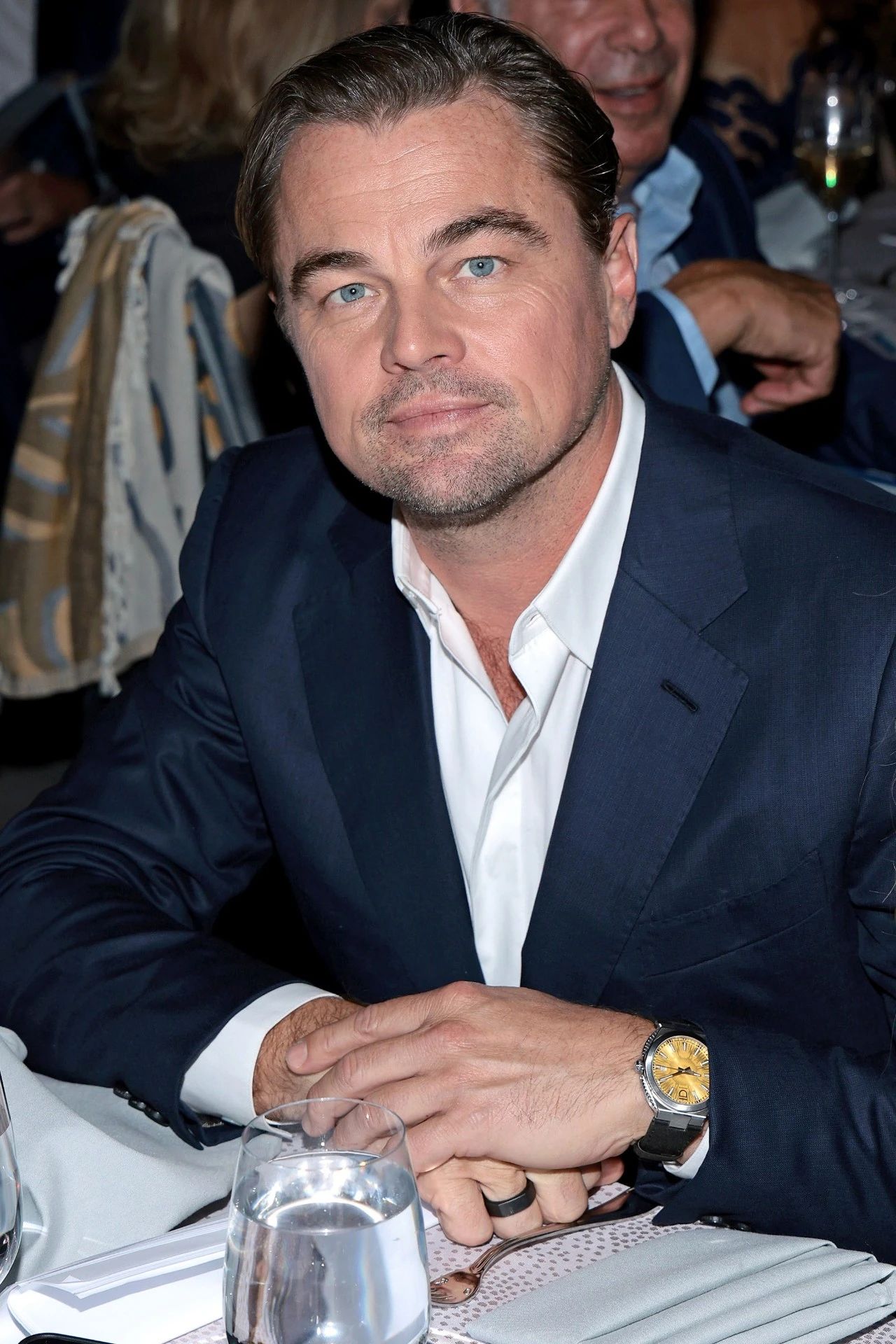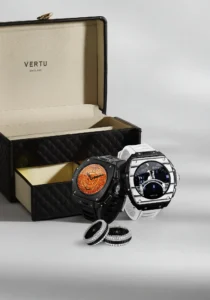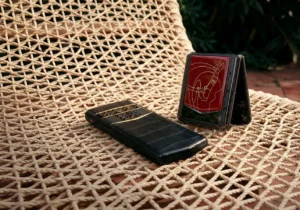Well-known Hollywood actors are also outstanding watch collectors and environmentalists. Leonardo DiCaprio recently invested in ID Genève, a Swiss-based watch brand certified by Common Benefit.
It is reported that the company's products are made entirely of recycled materials, aiming to promote the high-end watch industry to more sustainable business practices, including circular business models. Will Leonardo's blockbuster join the brand and what it is doing to gain more attention?
ID Genève, founded in 2020 and initially backed by about $300000 in crowdfunding from the Swiss platform Wemakeit, said Nicolas Freudiger, CEO and co-founder, that its mission is “to put the luxury industry at the heart of the ecological transformation. We want to forge a new identity for the luxury industry-a new ID.”
Image source: Nicolas Freudiger
Leonardo said in a statement: “I am very happy to be an investor in ID Genève. The brand is driving changes in the luxury industry and other industries through continuous innovation and attention to circular economy principles.” The amount of his investment is undisclosed.
All ID Genève watch dials are made of 100 per cent recycled steel from the Jura region of Switzerland, made by re-melting steel waste collected within a radius of 200 kilometers. According to estimates by the World Steel Association, steel manufacturing as a derivative of iron ore accounts for 7% to 9% of global carbon dioxide emissions in 2020. Many industries, from automobiles to infrastructure, already use recycled steel, and concerns about the aesthetic value of recycled alloys have hindered the development of the watch industry.
ID Genève's new Circular S model is reminiscent of Patek Philippe's Nautilus, made of so-called “solar steel”, derived from the furnace and mirror system operated by the sun's rays. Although the price of recycled steel is often about 10% more expensive than virgin steel, the cost of equivalent quality “solar steel” is as high as gold because it needs to be produced by hand.
Photo by ID Genève
ID Genève's strap is supplied by Italian company Vegea, which produces vegan fabrics from grape residues left behind after winemaking. ID Genève has replaced the bulky luxury packaging with practical beige boxes emblazoned with the word “compost”, which the company says can be left in the garden and degraded within 45 days because its material is derived from mushrooms, which mix mycelium (lots of mushroom filaments) with agricultural waste to make compostable packaging. A durable travel bag made of waste wine is attached to the box.
Photo by ID Genève
ID Genève formed partnerships with these companies after asking questions about recycled materials from common suppliers in the industry and was widely discussed. Vendors in the watch industry follow the classic linear model of buying mined metal, brand new leather parts and manufacturing components rather than recycling them, and for a single customer representing a small part of the market, changing the way they operate would be cumbersome and costly.
The movement of ID Genève products-the core component that powers the watch-is taken from unsold inventory returned by brands and retailers, and Mulhauser disassembled, cleaned and repaired by co-founder and watchmaker Cédric. The surface treatment of each watch may be different. This process is 30% more expensive than installing a new movement in a watch. Freudiger admits that this practice is somewhat restrictive and can reliably produce 2,000 watches a year-ID Genève's goal is to produce 600 watches this year-but his company has begun researching movements made from recycled materials to reduce costs and increase production capacity.
Photo by ID Genève
The price of ID Genève products ranges from CHF 3,500 to CHF 4,380, with sales of CHF 430,000 during the launch period (the company declined to comment further on its turnover). In addition, through e-commerce, the products are now available in Watches of Switzerland in the United Kingdom and the United States. David Hurley, deputy chief executive of Watches of Switzerland, believes there will soon be a “Leonardo effect” in brand sales “.
Deloitte's 2021 research shows that consumers are interested in buying watches that meet environmentally ethical standards, and that the material and its impact on the environment are among the top sustainability criteria considered by customers. Another impetus for the environmental cause comes from Swiss legislation requiring larger groups to comply with the disclosure requirements required by the Climate Related Financial Disclosure Task Force (TCFD) and the Responsible Business Initiative. For example, jewelers and watch manufacturers need to clearly communicate to consumers where their products are manufactured and must be able to generate documentation about the source of the components.
Traditional brands have been investing more in environmental practices. Founded in 1904, Oris has been working with environmental consultancy Climate Partner to offset its carbon emissions since 2021, and since last year, it has published a sustainability report monitoring its efforts to reduce emissions by 10 percent a year. At the Watches & Wonders show earlier this year, Chopard introduced Lucent Steel, a new steel alloy made from up to 80% recycled materials. Panerai uses eSteel made from recycled steel alloys in some of its watches, while Athens watches use steel from the automotive industry in its Ocean Race Diver series.
Photo by ID Genève
However, Damian Oettli, head of marketing at the nonprofit WWF Switzerland, believes the industry still has more work to do. “It is vital that the watch and jewellery industry becomes more transparent and able to trace the origin of its raw materials,” Oettli said. He highlighted “how environmental and social issues are interlinked” and provided examples of the ethical and environmental issues associated with gold mining, which were analyzed in the WWF 2021 report and are the focus of other ongoing activities. For example, in the Amazon region (Brazil or the province of Madre de Dios, Peru), illegal gold mining is closely linked to the leakage of toxic mercury into the environment. In these areas, the report also highlights the existence of child labor and forced prostitution.
“Brands need to take responsibility for their supply chains and work towards traceability and transparency. Both are essential for accurately assessing relevant environmental and social issues, developing solutions and subsequently working towards a more responsible value chain,” he added.
Photo by ID Genève
ID Genève's Freudiger expressed a similar sentiment, adding that he sees the brand's work as a laboratory for alternative, more sustainable practices across the luxury industry. “A watch uses only 80 grams of recycled steel; we don't change the world because of that,” Freudiger said. “However, this watch is very symbolic, and we hope it will have an impact outside our company.”
After Leonardo joined, ID Genève's next wish was to collaborate with traditional brands. “I like to express my intentions,” Freudiger said. “The cooperation with Leonardo DiCaprio was quoted in a news article two years ago saying that we were happy to work with him, so now I want to say that we are also happy to work with a traditional brand in the future. Cooperation.”
(Source: VOGUE)















